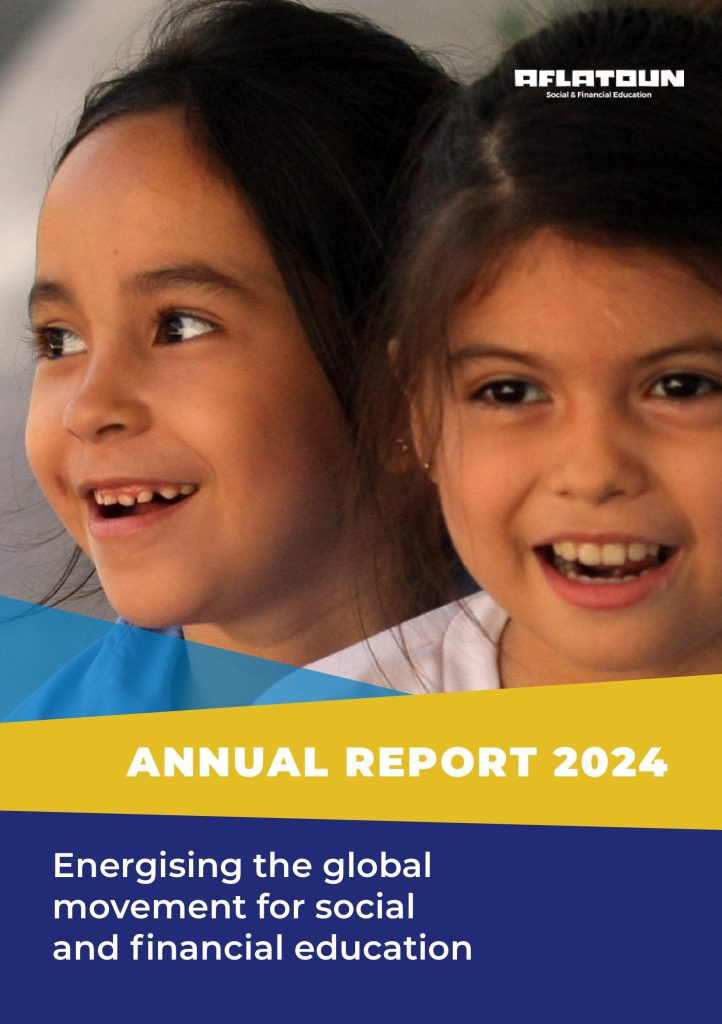Zenü Network was founded in 2006 and operates in Cameroon. Its network of civil society actors is the main pillar of the foundation and together with the community, they are committed to enable and strengthen social transformation for a better life and wellbeing of Cameroonian citizens. In tune with the network’s vision, the organization works for a fairer and more equitable society, where each citizen has the useful “capacities” to express their opinion and contribute to the development of Cameroon.
Similarly, to uplift local livelihoods and self-agency within communities, Zenü Network promotes the pooling of knowledge and life skills experience to increase the visibility of civil society actions and collective organisations. They do so by improving access to social and financial education of youth, social inclusion of vulnerable groups, providing capacity-building strategies to contribute to development work and further action to involve the local youth and other members in the participation of local governance and the monitoring of public investments.
To implement and ensure social impact in the field of capacity building for marginalized communities, the foundation has been carrying out the Cameroon Youth Forum for 15 years. The last Youth Forum was in August 2022, and it brought together 500 young civil society members united for “Emergence and Sustainability Development”
Additionally, the foundation also promotes citizenship education since 2008. Just last month, on April 13th 2023, Zenü Network organised a conference with educational talks and debates as part of the Citizen School Programme. These talks are planned on a weekly or monthly basis, as part of the Club d’Eduction Civique et Intégration Nationale (CECIN-Aflateen) of each school in the western and central regions of Cameroon.
During the conference, students had the chance to engage in critical debates and in topics that encourage active citizenship and strengthen their role as catalysts for change. In total, approximately 155,000 students and 2,500 teachers were exposed to conferences-debates addressing themes such as harmonious coexistence, cultivating a culture of peace, sexual and reproductive health, combating violence and sexual harassment, addressing drug use, promoting digital literacy and other significant societal issues.

Our Partnership
Zenü Network is also proud of its integration of social and financial education, as part of their partnership with Aflatoun International. Aside from the Aflateen curricula in the Citizen School Programme for secondary schools, the Aflatoun curricula is also contextualized to promote social change through various youth activities, including the support of the development of saving initiatives among the school clubs in 160 schools in the area.
Moreover, as our partnership grows, together we contribute to introducing financial education programmes to the youth, with a special focus on financial security, nurturing healthy relationships with money as a guarantee of social cohesion in the community, and as a tool to empower future, locally run, sustainable enterprises.
As detailed by a Zenü member, “social and financial education is an important source of emulation for the young students, who initiate joint projects (breeding, nurseries, field trips and visits to financial institutions)”.

The Value of Communal Solidarity While Moving Forward
In several evaluation and survey sessions, youth members of the Aflateen clubs participating in the social education activities shared how their behaviours at home, at school, and with their peers had changed.
“At the family level, the youth are more respectful towards their parents, have less conflictive relationships with their siblings, towards their teachers and they are more courage to speak up when in need. As a result, they build trust and closer ties to role models.”
“With their peers, the spirit of mutual aid has increased. Students have learned how o be tolerant and accept others as they are. They feel more comfortable working in a group, and have more self-control in conflictive situations.”
In the western regions, the members of the Aflateen clubs set up a financial enterprise project, creating a school garden, the income of the sale of which supplemented by savings, enabled them to offer donations to an orphanage. Their testimony at the end of the activity was so mobbing, as they discovered the true meaning of solidarity.
In another school in the central region, an operation called “One Student, One Chicken” was launched as part of a livestock enterprise project. The income from the sale was re-distributed to the members of the club, and after a reflection exercise, students shared their common acknowledgement and respect towards their parents for providing for their continued sacrifice to empower their children.












